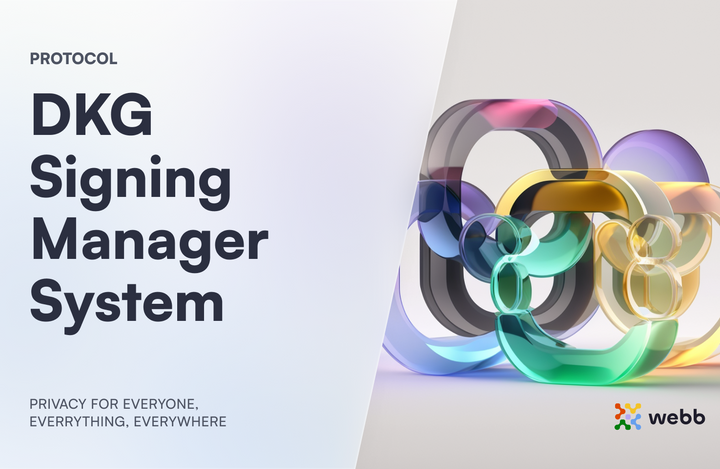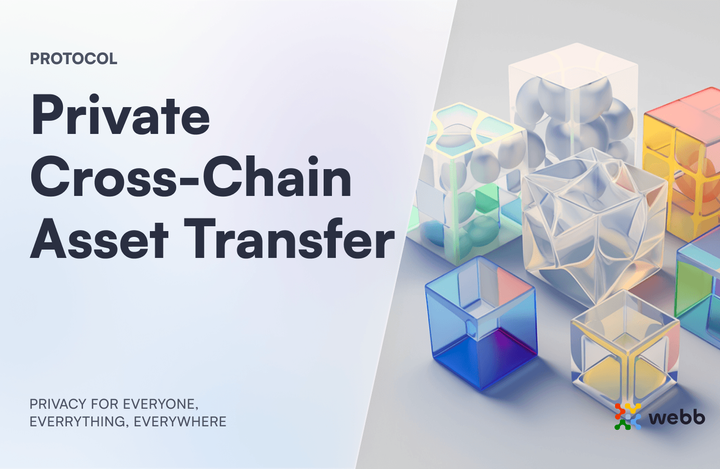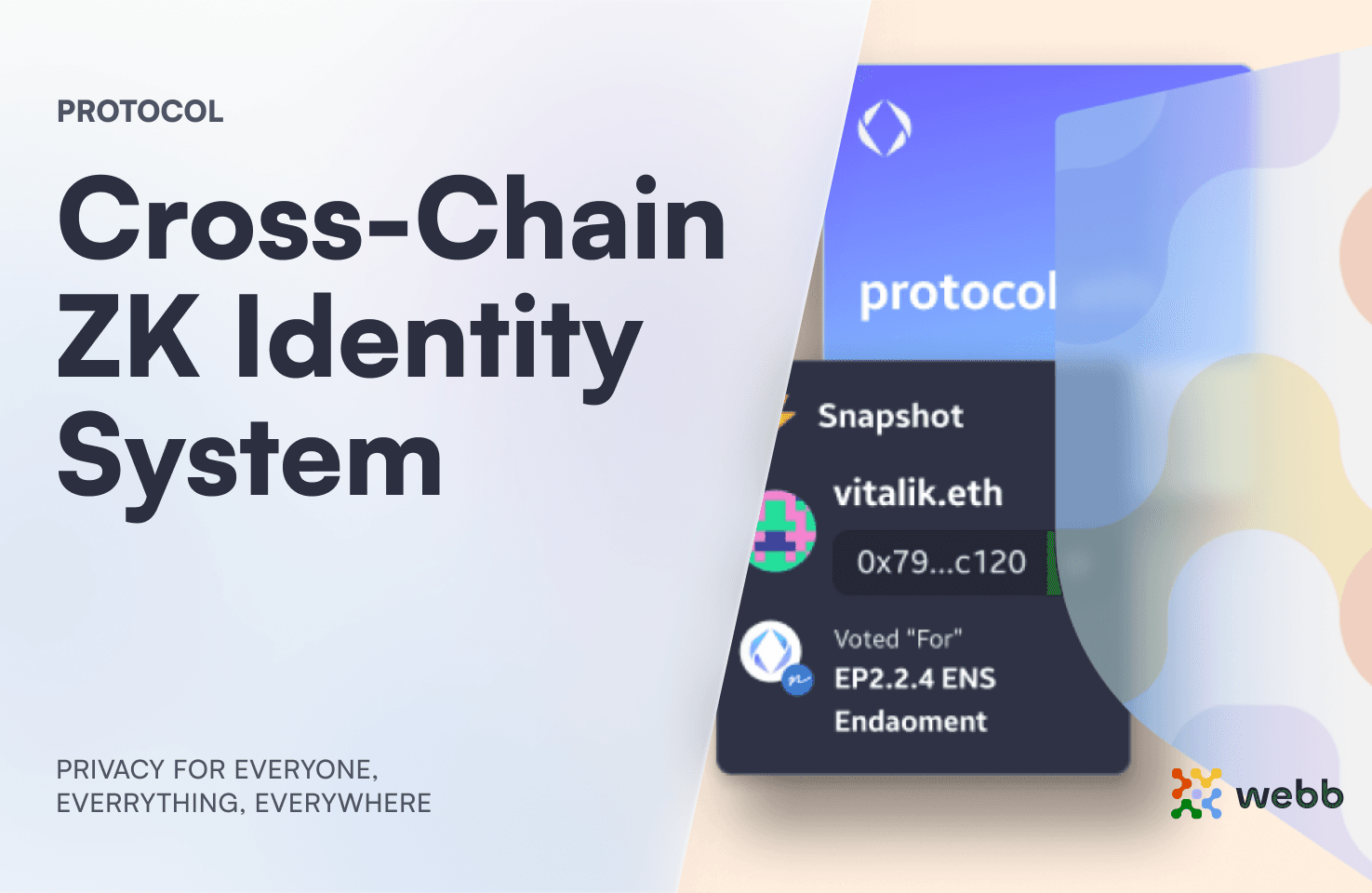Webb’s Approach to Governance and Privacy
Webb is a blockchain project that implements a governance system to manage updates to linked anchors.
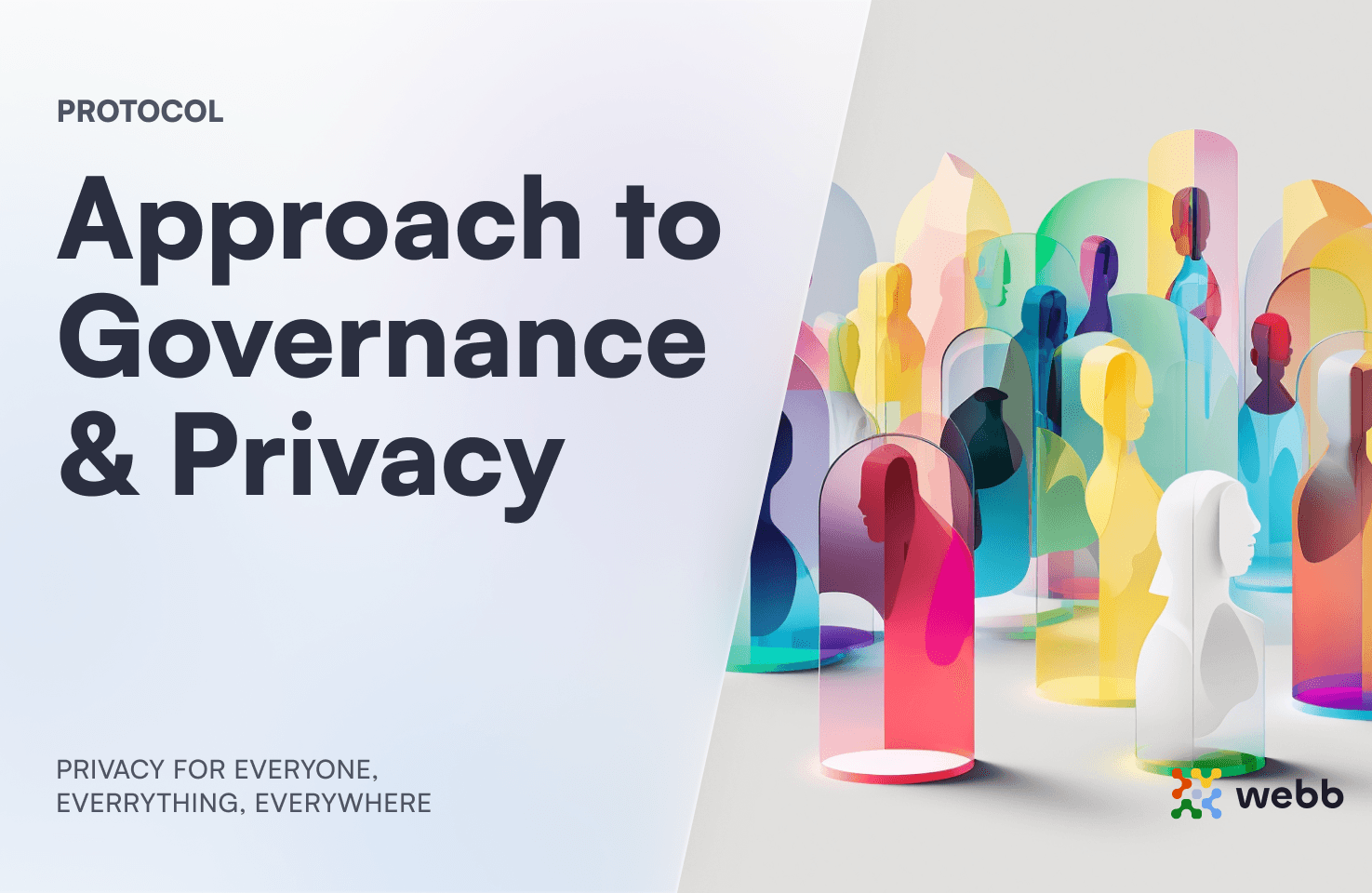
Privacy and Governance in Blockchain
Blockchain technology has been praised for its potential to enhance privacy, security, and governance. However, many users still have questions about how these features are implemented in practice, this article will walk you through how we approach the challenge at Webb, including our latest improvements.
Current Governance System and its Drawbacks
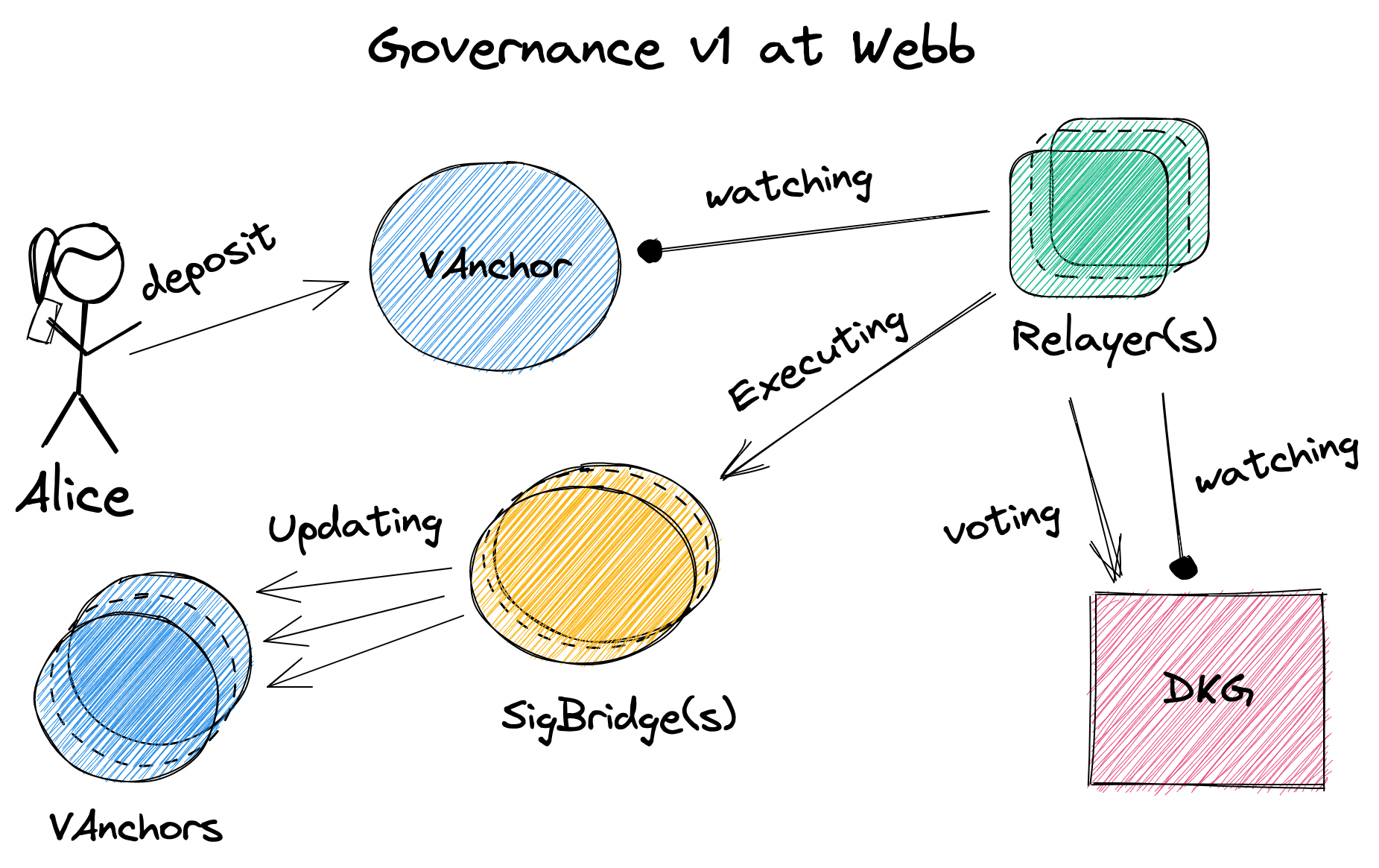
Webb is a blockchain project that implements a governance system to manage updates to linked anchors. The current governance system, called Governance v1, relies on preselected proposers, blind signing, and a threshold system. While this system provides a certain level of trust and integrity, it has several drawbacks:
- Limited participation: The reliance on preselected proposers limits the pool of potential participants and may lead to a lack of diversity in decision-making.
- Irreversibility: Once a proposal is signed and executed, it cannot be reversed or corrected, which could be problematic if errors or discrepancies occur in the execution process.
- Potential delays: The time it takes for a proposal to move from creation to signing may be delayed depending on the
proposersThresholdfactor, which could be inconvenient if decisions need to be made quickly. - Lack of transparency: The current governance system does not have a mechanism in place for auditing the actions taken by proposers, relayers, or governance oracles, which could lead to potential security vulnerabilities or fraudulent activities.
Introducing Governance v2: A Trustless and Transparent Solution
Governance v2 aims to address the drawbacks of Governance v1 by implementing the following key features:
- Trustlessness: Anyone can become a proposer, removing the need to rely on preselected proposers.
- Proof and verification: Proposers must provide proof and verification for the actions they intend to sign.
- No delays: If a proposal is valid, it can be signed immediately, without the need for proposers, thresholds, or delays.
- Full transparency: All actions occur on-chain, eliminating the need for voting or reliance on trusted relayer operators.
Light Clients: The Key to Trustless Governance
To achieve these goals, Governance v2 utilizes light clients, which are software applications that connect to a blockchain network without having to download and store the entire blockchain history. Light clients rely on other nodes on the network to provide relevant data when needed, such as transaction confirmations, block headers, and other relevant information.
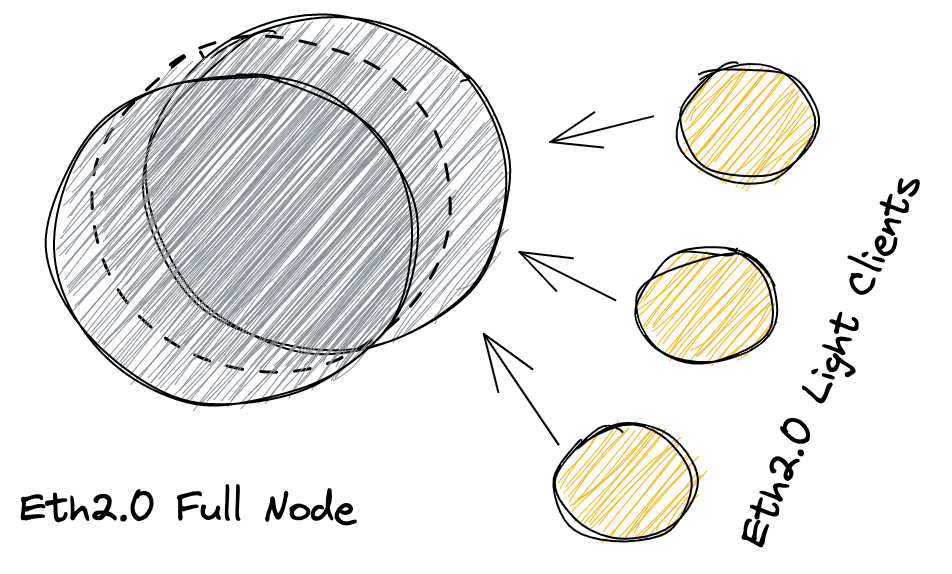
In the context of Governance v2, light clients enable trustlessness by providing cryptographic proofs, such as Merkle proofs, that allow the governance system to verify the validity of data on the blockchain without the need to store every single transaction. This approach enables a fully trustless governance system that is transparent and secure, and eliminates the need for reliance on a set of trusted relayers.
Implementing ETH 2.0 Light Client and Relayers
To implement Governance v2, Webb is building an ETH 2.0 Light Client that sends block headers to the Webb blockchain. These headers are used to validate proposals and ensure that they are executed correctly. The relayers no longer just vote for proposals and wait for signatures; instead, they follow a more efficient process:
- Monitor changes in the state of the Anchor Smart Contract.
- Obtain the complete block header containing the change.
- Create proof of the state change.
- Send the full block header along with the proof of the change to a new pallet called
light_proposals. - The
light_proposalspallet verifies the block header and proof, creates theAnchorUpdateproposal, and sends it for immediate signature by the DKG.
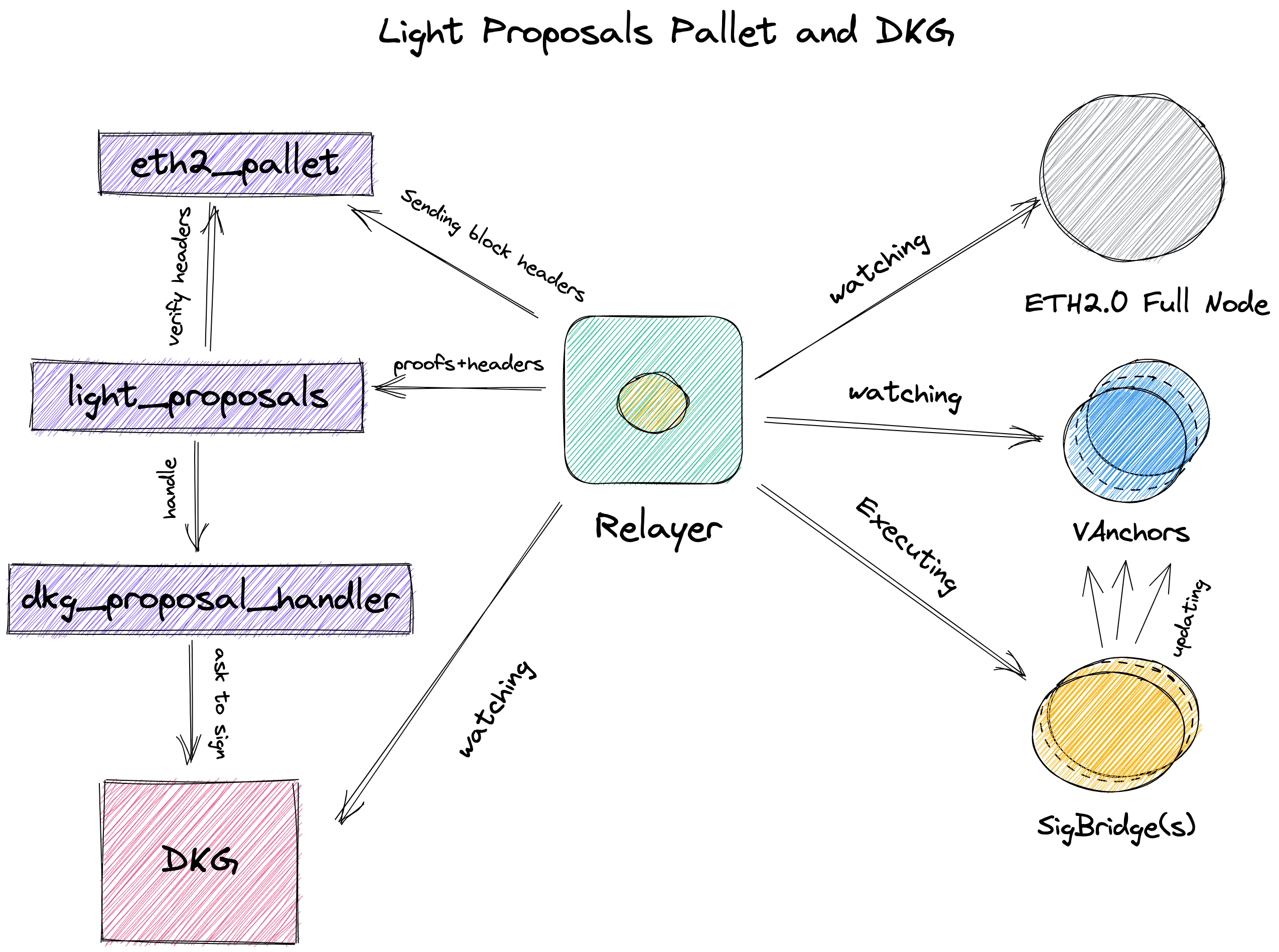
This new system significantly improves the privacy and transparency of the governance process in blockchain. By leveraging light clients and on-chain verification, Governance v2 eliminates the need for preselected proposers, blind signing, and threshold-based delays. Additionally, it ensures that all actions occur on-chain, providing a fully transparent and auditable governance system.
In summary, the implementation of Governance v2, combined with the use of light clients, paves the way for a more trustless, transparent, and efficient governance system in blockchain technology. By addressing the limitations and drawbacks of the current governance model, projects like Webb can provide users with greater confidence in the security and integrity of their platforms. As blockchain technology continues to evolve, innovative solutions like these will play a crucial role in shaping a more decentralized and equitable digital landscape.
Webb: Scaling privacy everywhere, for everything, for everyone.
Webb Protocol, founded by Drew Stone, the co-founder of Commonwealth Labs, is a trailblazing cross-chain messaging layer that connects blockchains through advanced zero-knowledge (ZK) technology and multi-party computation (MPC). This platform unveils a world of possibilities for secure financial, identity, and social applications, all powered by zero-knowledge proofs and decentralized trust in governance.
With a focus on comprehensive developer documentation, sample applications, and seamless user experience, Webb Protocol enables developers to create innovative zero-knowledge-based cross-chain apps, node operators to earn rewards for relaying data, and users to establish proofs of assets and identities across multiple chains. Webb Protocol is founded on a commitment to zero-knowledge proofs, multi-party computation, and a developer-centric approach, fostering the creation of genuinely secure and private cross-chain applications that advance distributed trust and governance.
Get Involved with Webb
We invite you to join our mission to scale privacy for everyone. We're always on the lookout for talented and passionate individuals to join our team or open-source contributors of all backgrounds building the next generation of privacy and trust.
To stay in the loop, sign up for our monthly newsletter and follow us on Twitter, Telegram, Discord, and more. We're excited to have you on board.

